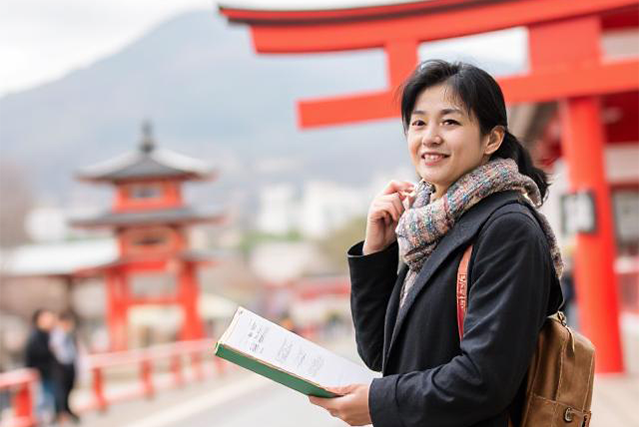🗣️ Introduction: The Beauty of Untranslatable Words
Every language carries the culture and philosophy of the people who speak it. Japanese, with its deep roots in tradition, nature, and social harmony, is rich with expressions that have no direct English equivalents. These untranslatable Japanese words reveal the subtle emotions, values, and ways of thinking that define Japanese life.
Let’s dive into 10 beautiful Japanese words that you’ll wish existed in English.
1. Tsundoku (積ん読)
Meaning: The act of buying books and letting them pile up, unread.
Explanation: You know that towering stack of books on your shelf waiting to be read? In Japanese, there’s a word for that—tsundoku. It’s not about being lazy; it often reflects a love for books, even if you don’t get around to reading them all.
2. Wabi-sabi (侘寂)
Meaning: A worldview centered on the acceptance of transience and imperfection.
Explanation: This aesthetic concept values the beauty found in imperfection, impermanence, and incompleteness. A cracked tea cup, a faded kimono—wabi-sabi sees elegance in simplicity and imperfection.
3. Komorebi (木漏れ日)
Meaning: Sunlight filtering through trees.
Explanation: There’s something magical about light dancing through leaves. The Japanese word komorebi captures this serene, fleeting moment in nature—a concept with no one-word equivalent in English.
4. Yūgen (幽玄)
Meaning: A profound, mysterious sense of beauty in the universe.
Explanation: Yūgen goes beyond the visible. It describes an awareness of the universe that evokes an emotional response too deep for words—like watching the moon rise over a quiet sea.
5. Natsukashii (懐かしい)
Meaning: Nostalgia tinged with happiness.
Explanation: Unlike mere longing, natsukashii is a warm feeling that something from the past was precious. It might be triggered by a smell, a song, or a childhood memory that brings a smile to your face.
6. Shinrin-yoku (森林浴)
Meaning: Forest bathing; the act of immersing yourself in a forest atmosphere.
Explanation: Shinrin-yoku is not just a walk in the woods—it’s a meditative practice of reconnecting with nature to enhance health and well-being. Japan even promotes it as a form of therapy.
7. Itadakimasu (いただきます)
Meaning: A phrase said before eating, expressing gratitude for the food.
Explanation: More than just “Let’s eat,” itadakimasu shows respect for the ingredients, the cook, and all beings involved in the meal’s preparation. It’s a cultural reflection of mindfulness and gratitude.
8. Senpai (先輩)
Meaning: Someone senior to you in a social or professional context.
Explanation: While loosely translatable as “mentor” or “upperclassman,” senpai conveys a specific hierarchical respect. It’s commonly used in schools, workplaces, and clubs, symbolizing guidance and seniority.
9. Gaman (我慢)
Meaning: Enduring the seemingly unbearable with patience and dignity.
Explanation: Deeply rooted in Japanese culture, gaman reflects emotional strength and self-control. It encourages perseverance, especially in times of hardship, without complaint or visible distress.
10. Mono no aware (物の哀れ)
Meaning: The bittersweet awareness of the impermanence of things.
Explanation: Mono no aware is a sensitivity to the fleeting nature of life—a quiet sadness that accompanies the passing of beauty. Cherry blossoms falling, summer ending, or an old friend moving away can all evoke this poignant feeling.
🎌 Conclusion: Language Reflects Culture
These Japanese words with no English equivalent open a window into the Japanese soul. They teach us how language can express emotions and experiences that are often left unspoken. Learning these words isn’t just about vocabulary—it’s about understanding a culture that values nature, mindfulness, and connection.
So next time you feel natsukashii or pause to enjoy the komorebi, remember: some of life’s most beautiful moments are beyond translation.

